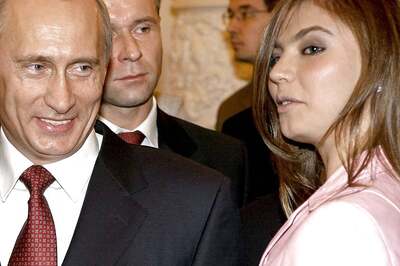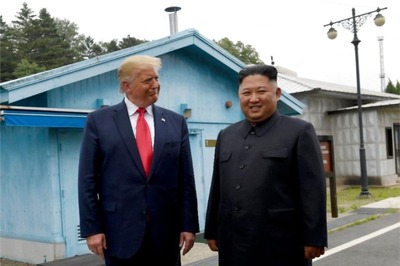
views
On April 20, 1918, Sir Dinshaw Petit, a prominent Parsi businessman in Bombay, was stunned to discover in the Bombay Chronicle that his daughter, Rattanbai, had married Muhammad Ali Jinnah, a close friend and a rising political figure. The revelation prompted an uproar within the Parsi community, fuelled by a sense of betrayal.
Dinshaw Petit, a respected member of the Parsi community, had formed a friendship with Jinnah while working on a legal case. Their bond deepened, leading to Jinnah being a frequent visitor at Petit’s home. In the summer of 1916, Jinnah met Rattanbai, just 16 years old at the time, during a trip to Darjeeling, where he reportedly fell in love at first sight.
When Jinnah expressed his desire to marry her, Petit vehemently opposed the idea, leading to a rift between the two men. Despite the hostility, Rattanbai and Jinnah maintained contact through letters, even after Petit secured a court order that barred Jinnah from seeing her.
On February 20, 1918, when Rattanbai turned 18, she made the controversial decision to leave her father’s home and convert to Islam, as Jinnah had insisted on her renouncing her Parsi faith for their union. They married later on April 19, 1918, igniting outrage within the Parsi community, who viewed her conversion and the marriage as a significant betrayal.
Rattanbai, regarded as a jewel of the Parsi community, faced backlash for her decision to marry Jinnah, who was 24 years her senior and an emerging political figure in India. Former Prime Minister Jawaharlal Nehru’s sister, Vijay Lakshmi Pandit, noted in her autobiography, ‘Scope of Happiness’, that this union catalysed a movement across India, highlighting its widespread impact.
Renowned poet Sarojini Naidu remarked in a letter about the marriage, stating that Jinnah had “finally plucked the blue rose of his choice” and suggested that Rattanbai had made a significant sacrifice, possibly unaware of its full implications.
However, the marriage faced difficulties soon after, as Rattanbai’s love for modern, ostentatious fashion clashed with Jinnah’s more traditional values and political aspirations. According to Sheela Reddy’s book, ‘Mr and Mrs Jinnah’, Rattanbai was taken aback by the state of Jinnah’s home on her first visit, which did not align with her expectations of a gentleman’s living conditions.
Following their separation, Rattanbai moved to the Taj Mahal Hotel, yet Jinnah continued to visit her daily. Tragically, she passed away on February 20, 1929, at just 29 years old. Muhammad Karim Chhagla, Jinnah’s secretary and later India’s foreign minister, recounted that Jinnah was seen crying publicly for the first and only time at her funeral, marking a poignant moment in his life.




















Comments
0 comment